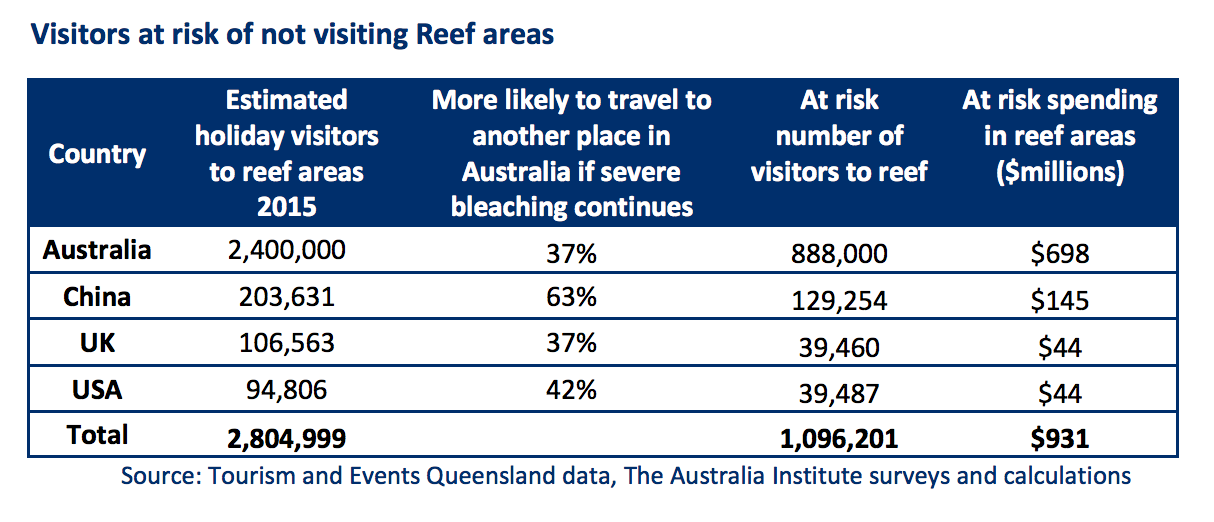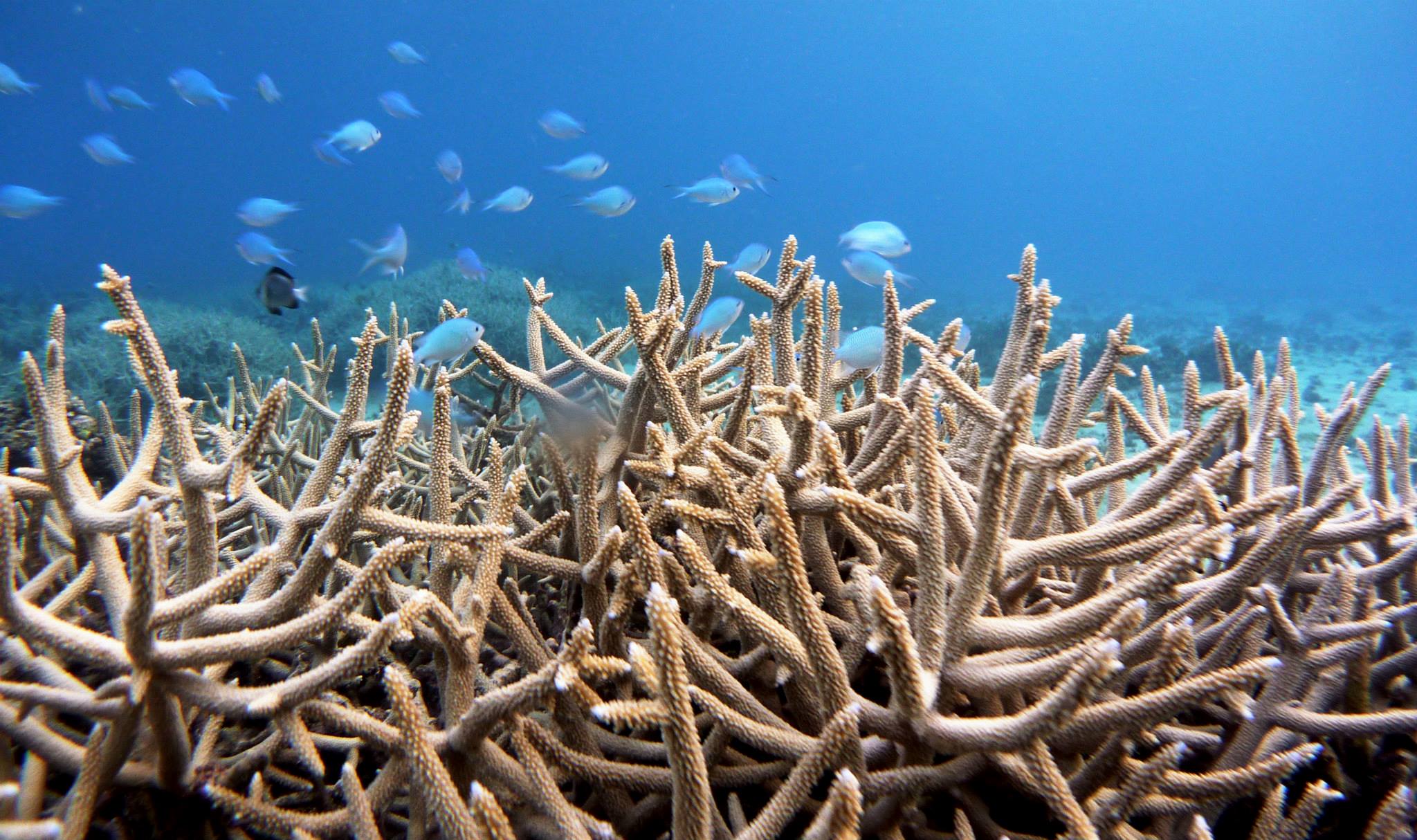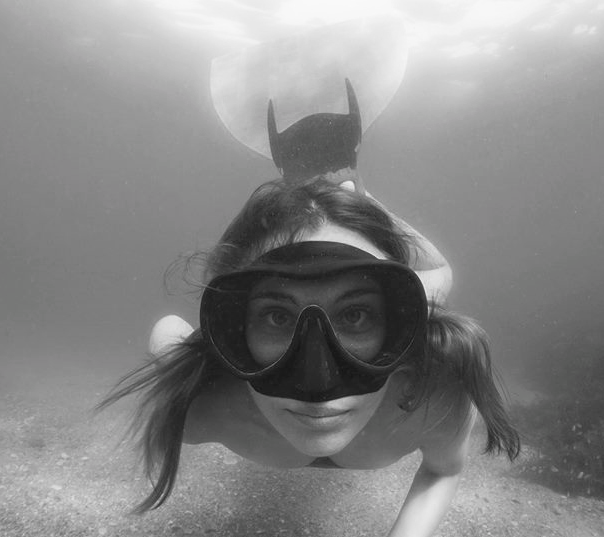Can you cut 1 Tonne of carbon pollution out of your life?
Take the challenge1 Million Women is urging the World Heritage Committee to declare the Reef in danger, putting pressure on the Australian Government to take proper action against climate change, the number one threat to the Great Barrier Reef. Please add your name to our open letter.
The Great Barrier Reef is Australia's national treasure, and this is evident from the 73 percent of potential visitors from China, the UK and USA who consider the Reef one of Australia's top attractions. A new study has shown that the catastrophic coral bleaching that took place on the Great Barrier Reef earlier this year has severely damaged not only the health of the Reef, but also the health of the Australian tourism industry.
A report released today shows that if bleaching continues on the Reef, Australia could lose over 1 million visitors per year and 10 000 tourism jobs.
The Australian Institute conducted an online poll of over 4000 people in China, the UK, the US and within Australia to determine the impact of coral bleaching on visitor's perception of the Great Barrier Reef. The report highlights the leading contributions the coal industry makes to climate change, much of which is mined near the Reef itself, and calls for a moratorium on future coal mines.
What we learned from 'Great Barrier Bleached'
Tourism is the backbone of the Queensland economy.
The marine tourism industry alone generated $4.228 billion in 2003. Last year 2.4 million Australian holidaymakers headed to the Reef, and another 1.1 million people came from overseas to visit the iconic region. These tourists spent more than $3.3 billion visiting the Great Barrier Reef.
People worldwide are aware of the plight of the Great Barrier Reef.
We're only half way through the year, and already 2887 articles have been posted globally about the Reef. In 2015, there were only 90. Of those surveyed internationally, almost two thirds had heard about coral bleaching on the Reef at least "a little" or "some".

Image: Unsplash
If coral bleaching continues Australia faces the risk of losing a huge amount of international visitors.
More than half of Chinese respondents said they would be more likely to book a holiday elsewhere altogether, and if they were to head to Australia, around 63% said they'd visit somewhere different within the country.
In the UK, more than a quarter stated they'd cross Australia off their destination list, and more than a third of Americans felt the same.

A loss of tourists to the Reef goes in hand and hand with a loss of revenue generated by this industry.
The poll showed that a prospective decline in visitor numbers equates to a loss of more than a third of the $3.3 billion that travellers spend while holidaying on the Great Barrier Reef.
The world believes we need to act for the Reef
The poll showed that an overwhelming number of international respondents believe Australia has a duty to protect the Great Barrier Reef, which is bang on point. The Great Barrier Reef is protected under the World Heritage Convention and Australia is required to protect it for all of humankind.
Almost three quarters of the international respondents believe that Australia should cease the approval of any new coal mines, and transition towards renewable energy. The government has recently tried to hide the effect of coral bleaching on the Reef for fear of losing tourists to Australia, but sweeping the problem under the rug is evidently not going to fix it.
Almost three quarters of the international respondents believe that Australia should cease the approval of any new coal mines, and transition towards renewable energy.- -

The good news:
The state of the Reef and the associated potential drop in tourism is nothing to celebrate, however this poll acts as a wake up call. Rather than just speculating on the effects a bleached Reef could have on tourism, this survey is evidence of what could happen if we don't protect the Great Barrier Reef.
"Fortunately, the Queensland economy is modern and diverse. Four in five people work in service industries, while only 1 per cent work in the coal industry. Policies such as a moratorium on new coal mines can be implemented with a minimal effect on the Queensland economy."- - Ben Oquist, The Australia Institute's executive director
Australians continue to place the health of the Reef over the coal industry, and the insight gained from this survey will put even more pressure on Australia to place a moratorium on all new coalmines and act on climate change.
What you can do
You can help continue to place pressure on the Australian government by adding your name our open letter to The World Heritage Committee asking that they declare the Reef in danger the next time they meet in July.

